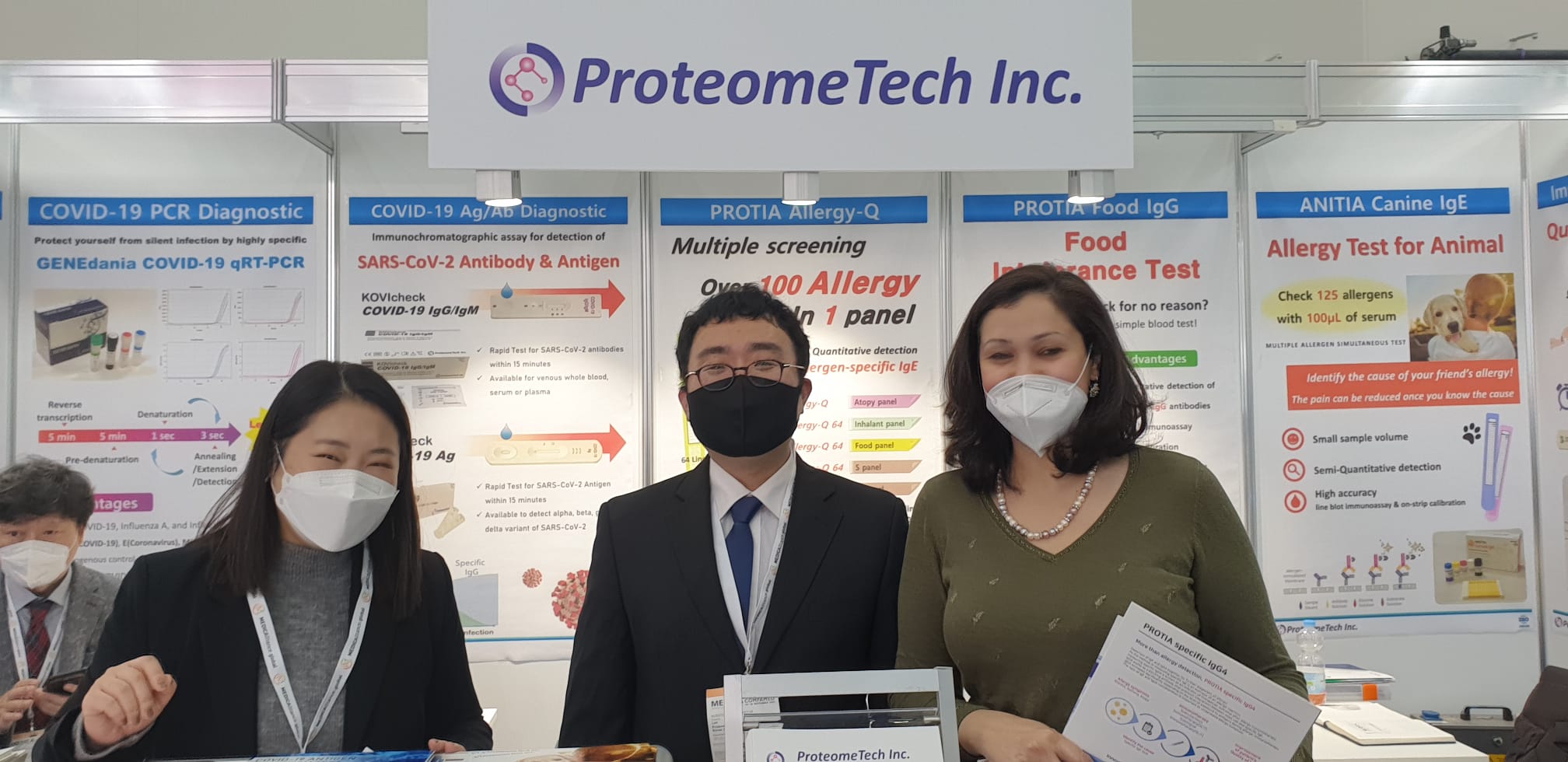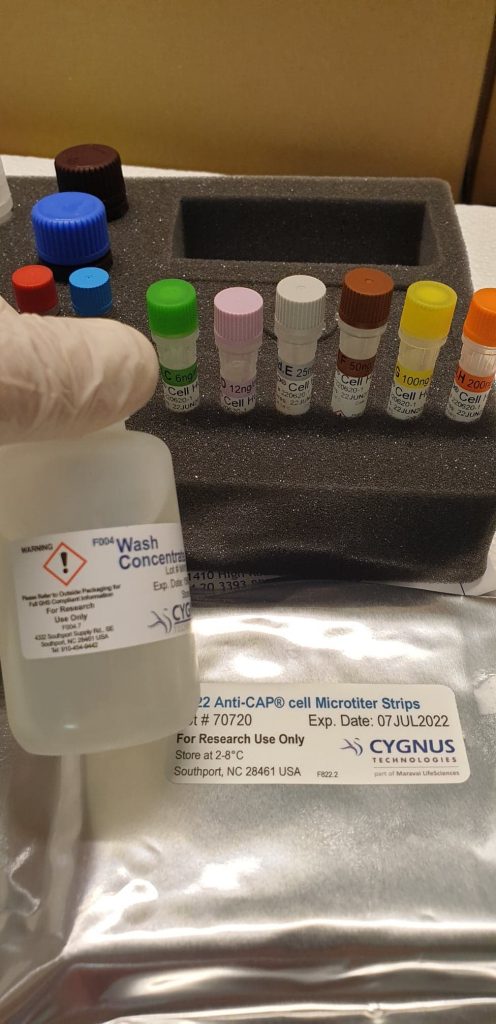PROTIA Allergy-Q
by Jo Miles

Purpose:
The PROTIATM Allergy-Q® enzyme immunoassay (EIA) is a newly developed screening assay for specific immunoglobulin E (sIgE) for multiple allergens. The ImmunoCAP® Fluorescent EIA (FEIA) system is the most widely used method for the detection of sIgE. In this study, we evaluated the performance of the Allergy-Q® System compared to the ImmunoCAP® System.
Methods:
We compared the 2 systems using sera from 260 Korean allergic patients suffering from asthma (26.5%), allergic rhinitis (42.3%), atopic dermatitis (67.7%), and food allergy (18.1%). We compared the results of sIgE measurements for 7 inhalant allergens, 5 food allergens, and 4 microbial allergens.
Results:
Overall, 1799 matched trial results were analysed. Except for mugwort and Alternaria, most allergen-sIgE results showed intraclass correlation coefficients of >0.5. Class associations between trials were reliable for most allergens (gamma=0.858-0.987, P<0.001). Passing-Bablok regression analysis showed multiple differences in intercept and slope. Agreement between methods was moderate to substantial for most allergens (κ=0.713-0.898, P<0.001).
Conclusions:
The PROTIATM Allergy-Q® EIA System showed good detection performance compared to the ImmunoCAP® FEIA System in Korean allergic patients. However, due to methodological differences between the 2 trials, careful clinical involvement is required for interpretation of the Allergy-Q® EIA results.
Keywords:
Allergen; specific IgE; detection performance; allergic disease; Allergy-Q®; ImmunoCAP
Purpose: The PROTIATM Allergy-Q® enzyme immunoassay (EIA) is a newly developed screening assay for specific immunoglobulin E (sIgE) for multiple allergens. The ImmunoCAP® Fluorescent EIA (FEIA) system is the most widely used method for the detection of sIgE. In this study, we evaluated the performance of the Allergy-Q® System compared to the ImmunoCAP® System. Methods:…

| M | T | W | T | F | S | S |
|---|---|---|---|---|---|---|
| 1 | 2 | 3 | 4 | 5 | 6 | 7 |
| 8 | 9 | 10 | 11 | 12 | 13 | 14 |
| 15 | 16 | 17 | 18 | 19 | 20 | 21 |
| 22 | 23 | 24 | 25 | 26 | 27 | 28 |
| 29 | 30 | |||||

Categories
- Bird
- Blog
- Conjugation of Synthetic Trisaccharide of Staphylococcus aureus Type 8 Capsular Polysaccharide Elicits Antibodies Recognizing Intact Bacterium.
- Model of vaccine efficacy against HSV-2 superinfection of HSV-1 seropositive mice demonstrates protection by antibodies mediating cellular cytotoxicity.
- My Blog
- PCR
- peptide
- Percp
- Perivascular Lymphocyte Clusters Induced by Gastric Subserous Layer Vaccination Mediate Optimal Immunity against Helicobacter through Facilitating Immune Cell Infiltration and Local Antibody Response.
- peroxidase
- phosphor
- PicoProbe
- Standard
- step
- sterile
- strip
- Target
- TEMED

